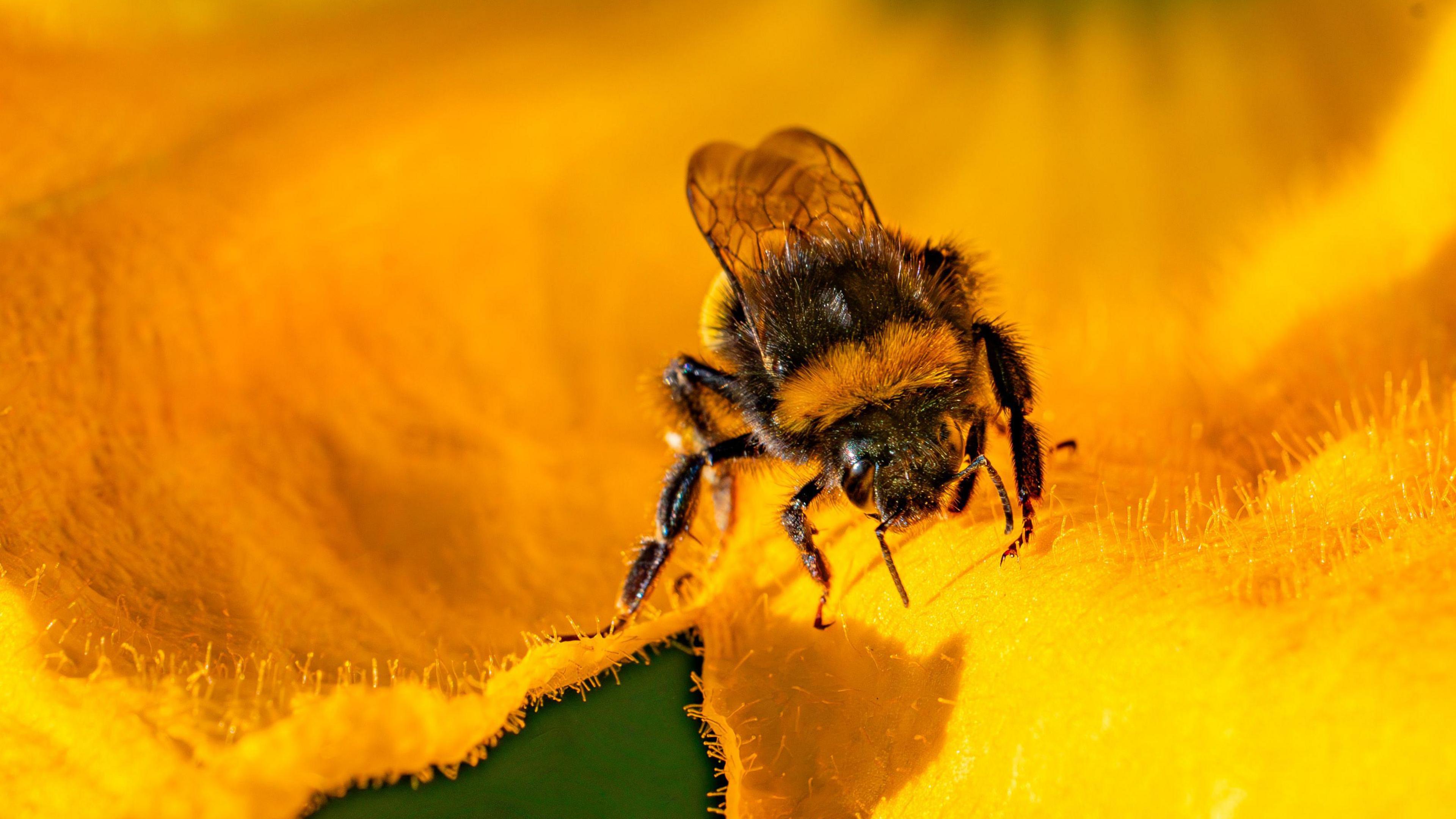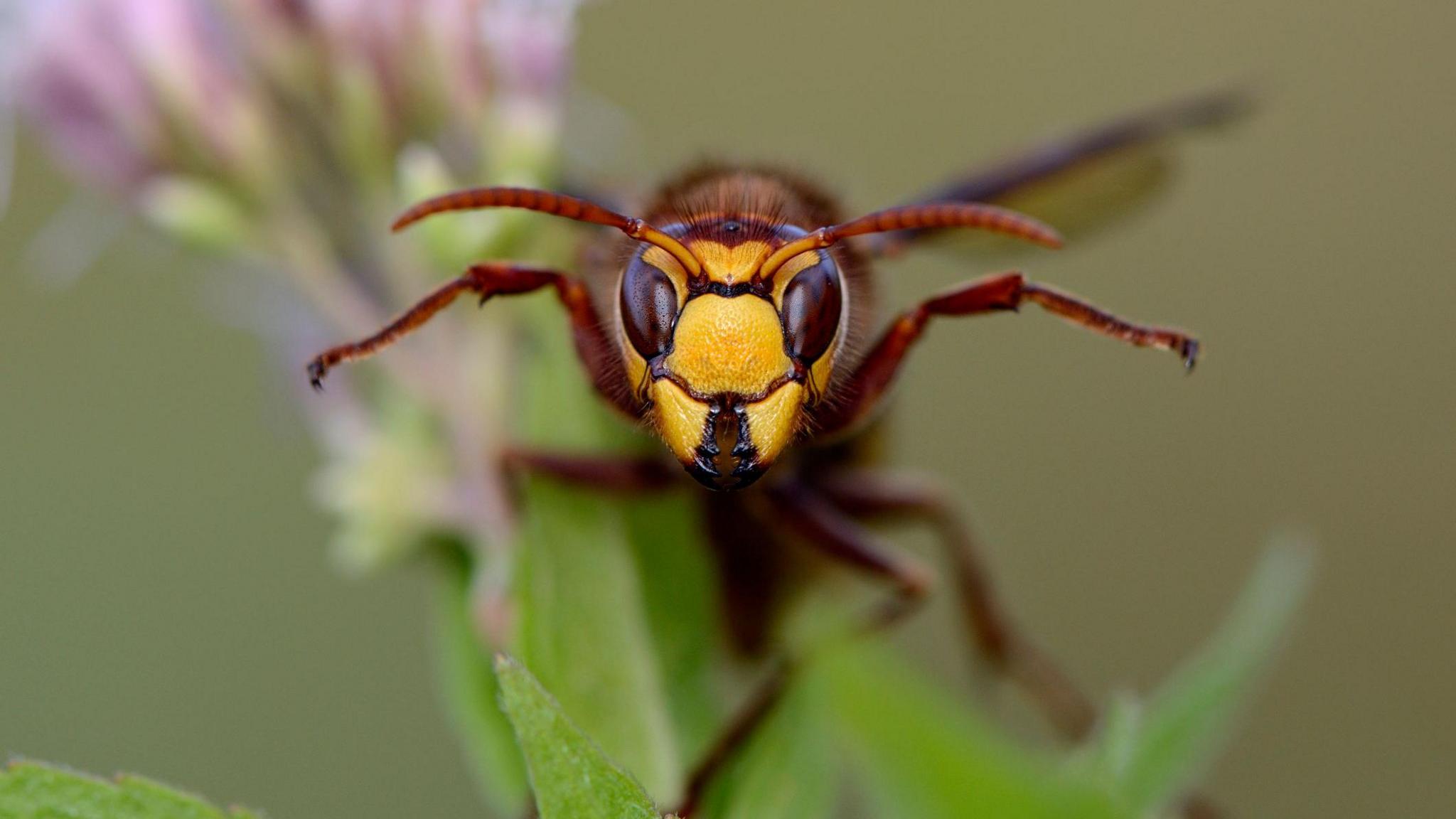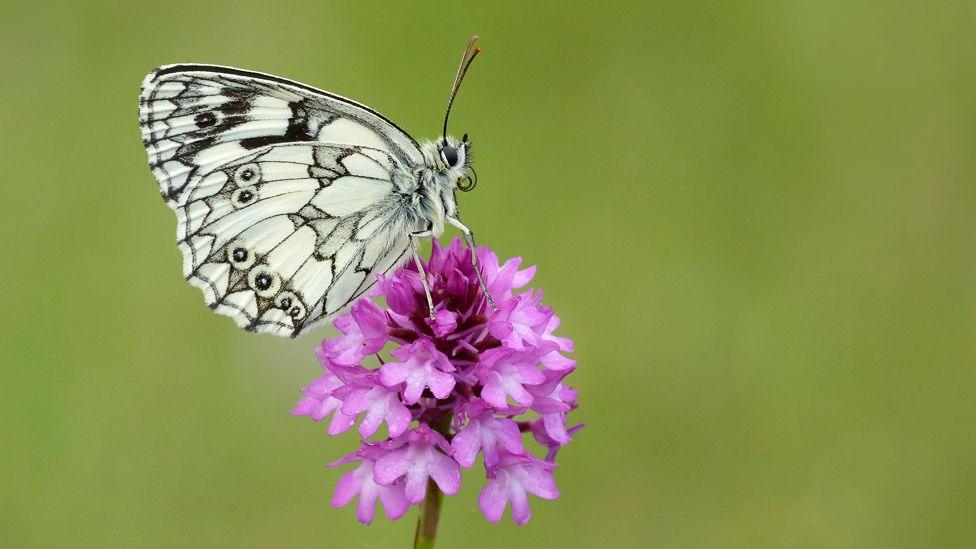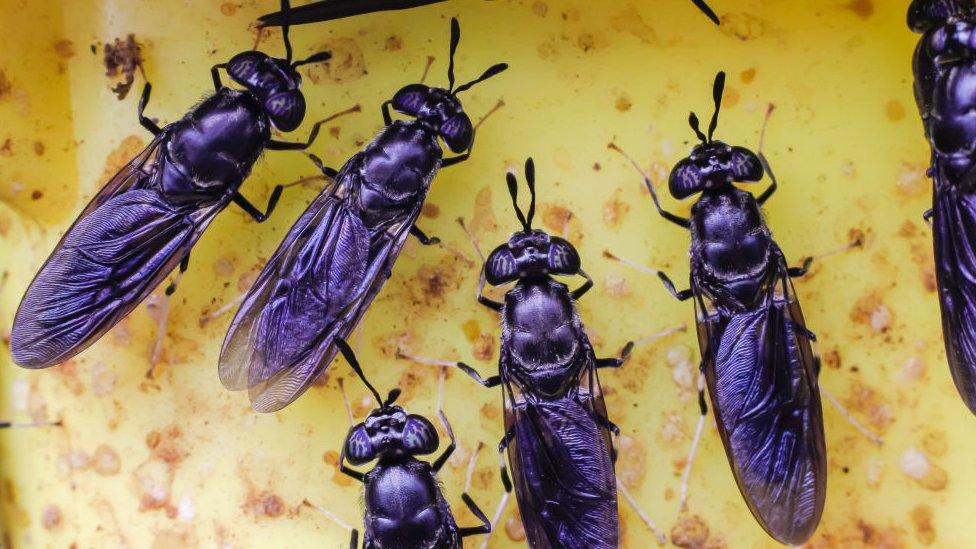Something has gone wrong for insects, says charity

There has been a decrease in sightings of butterflies, bees and other invertebrate species
- Published
An insect conservation charity has said "something has gone radically wrong" for bugs and invertebrate species after a noticeable reduction in their numbers.
Buglife, an organisation based in Peterborough, said there had been a decrease in pollinators, which had been noticed by residents and could be seen through a reduced number of elderflower berries.
Buglife said it feared that invertebrates faced an extinction crisis, and without them humans and other life forms could not survive.
Research from the Game & Wildlife Conservation Trust confirmed there had been an insect decline of 37% over 50 years.
Paul Hetherington, the director of fundraising at Buglife, told BBC Radio Cambridgeshire: "There is definitely a huge decline in the number of insects that people are seeing.
"We are seeing particularly a lack of pollinators. If you look at things like elderflowers, you'll find there are very few berries where the flowers had been so something has gone radically wrong."
The charity said it has noticed a reduced numbers of insects in Cambridgeshire and Peterborough, but added it was not only a local trend.
"Colleagues in Scotland have been reporting a lack of bugs," Mr Hetherington said.
"Midges are a very important food source... people are noticing less swallow nests and far fewer house martin nests because there is less food around for them.
"It is really important we have the bugs around to feed them."
He added bug hotels could help in some cases, but they needed to be in the right place and be effective, and not just pretty.
For example, solitary bees needed a hotel that was south facing and did not wobble.
The Game & Wildlife Conservation Trust, external said insect decline showed support for farmers was crucial to biodiversity recovery.
Data collected up until 2019 as part of the trust's ongoing Sussex Study, showed insect abundance declined by 37%.
Get in touch
Do you have a story suggestion for Peterborough?
Follow Peterborough news on BBC Sounds, Facebook, external, Instagram, external and X, external.
Related topics
More like this story
- Published28 May 2024

- Published24 May 2024

- Published2 May 2024
